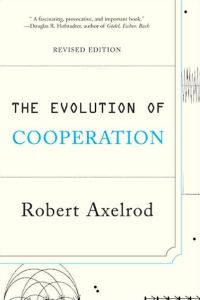
The Evolution of Cooperation
ISBN: 9780465005642
Pages: 264
Recommendation
Every so often a book comes along that is so groundbreaking it changes the popular worldview. This book, written in 1984 by Robert Axelrod, is just such a seminal work, an original analysis that changed the way experts view cooperation. Its ramifications apply to individuals, organizations, countries and even nonthinking – but nevertheless cooperative – biological life forms, such as bacteria. Axelrod based his book on the famous Prisoner’s Dilemma, a classic game created in 1950 by Merrill Flood and Melvin Dresher of the Rand Corporation. Canadian mathematician Albert W. Tucker added the prison sentence payoffs and gave the game its colorful name. Players have two choices: cooperation or betrayal. Axelrod organized two repeating Prisoner’s Dilemma tournaments played by computer programs devised by game theorists, scientists and other experts. His analysis of the tournaments’ results confirmed that cooperation is always a better long-term strategy than betrayal and, thus, evolution has favored it. This book, based on that analysis, has become a true classic. getAbstract suggests that anyone who wants to understand the dynamics of cooperation should start with this pivotal study.
Summary
About the Author
Political scientist Robert Axelrod is a former MacArthur fellow. His interdisciplinary work on the evolution of cooperation has been cited in more than 5,000 articles. His current research interests include complexity theory and international security.

















Comment on this summary